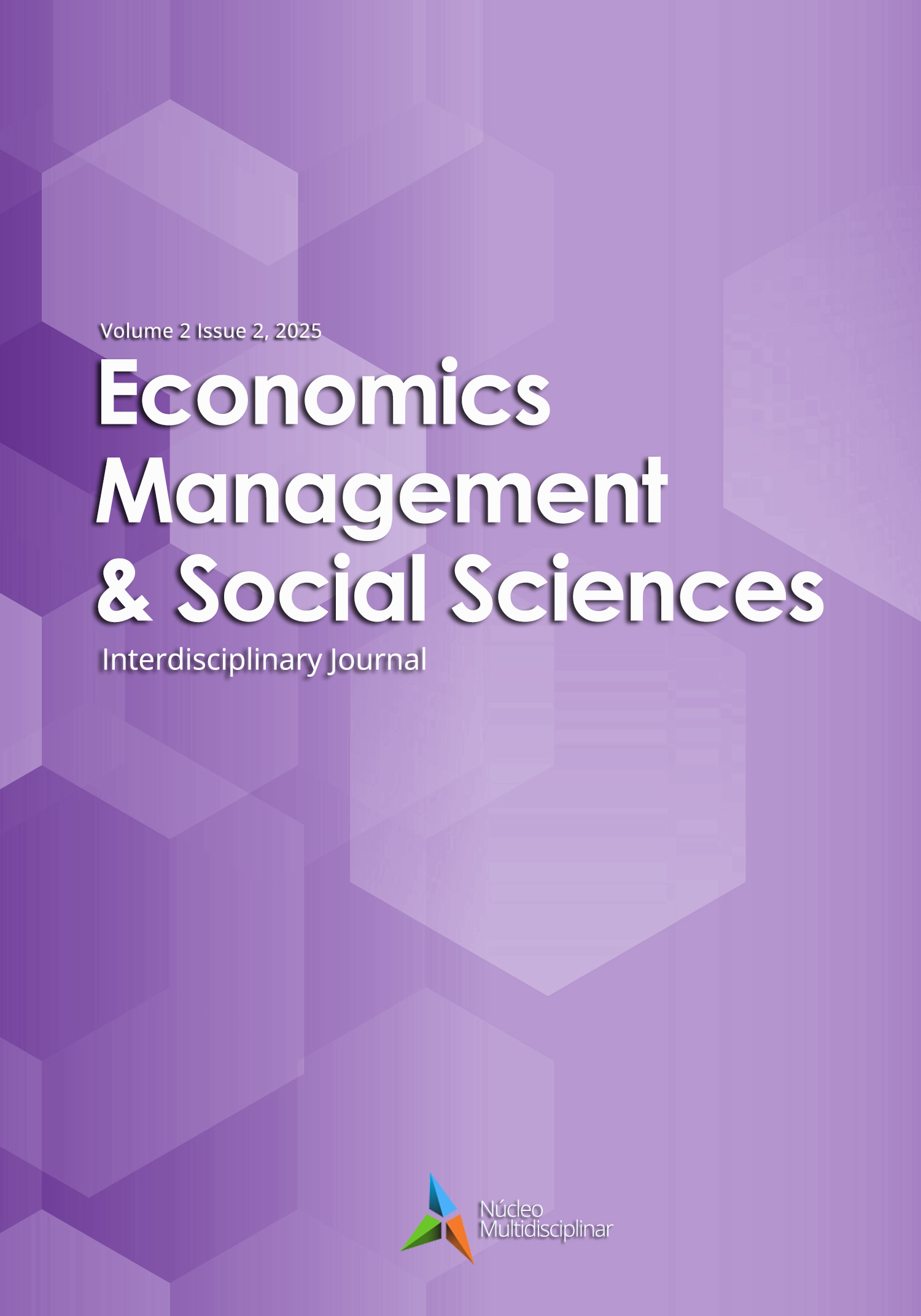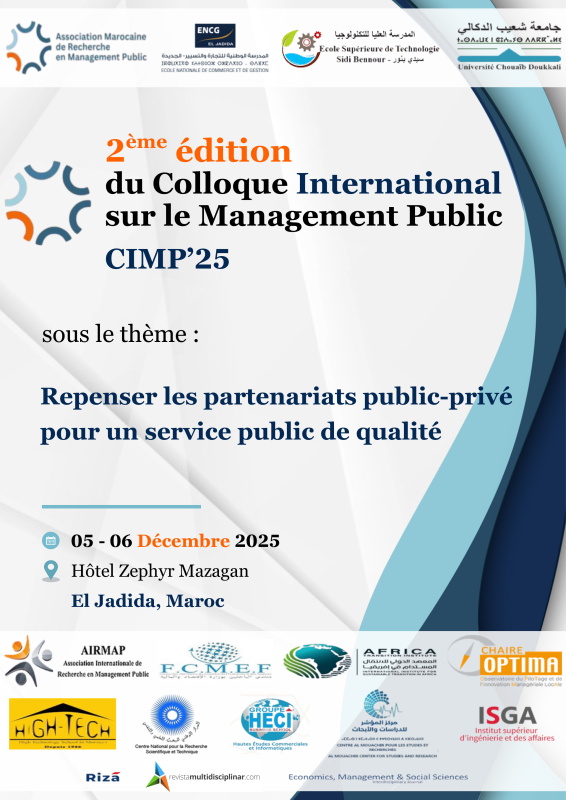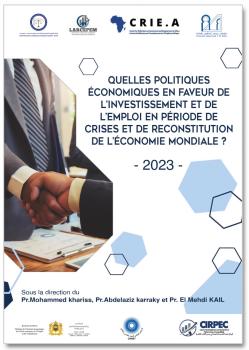The role of metaphors in shaping political Rhetoric
An Analysis of King Hassan II's Speeches in Morocco
DOI :
https://doi.org/10.23882/emss25180Mots-clés :
Metaphors, Political Rhetoric, National Identity, Political Legitimacy, Discourse Analysis, Conceptual Metaphor Theory, Arab Political CommunicationRésumé
This study explores the strategic use of metaphors in the speeches of King Hassan II of Morocco, focusing on their role in constructing political legitimacy and fostering a cohesive national identity during the critical post-independence era. The research aims to uncover how metaphorical language was employed by King Hassan II to address political challenges, consolidate his authority, and connect with a diverse populace by evoking shared cultural, religious, and historical narratives.
A qualitative content analysis was conducted on a corpus of King Hassan II’s speeches delivered between 1961 and 1999. These speeches were selected based on their thematic relevance to political legitimacy and nation-building. Conceptual metaphor theory served as the analytical framework, allowing for the identification and categorization of recurring metaphorical themes.
The findings reveal that King Hassan II frequently employed three dominant categories of metaphors. Familial metaphors, which positioned him as the “father” of the nation, fostering a sense of unity and shared responsibility among citizens. Religious metaphors, which drew upon Morocco’s Islamic heritage to frame his authority as divinely ordained and morally guided. Journey metaphors, which presented Morocco as a nation on a purposeful path toward progress and modernization, with the king as its guide. These metaphorical frameworks were not only pivotal in reinforcing King Hassan II’s political legitimacy but also in shaping a collective national identity that resonated across Morocco’s socio-political spectrum.
This study highlights the significant role of metaphorical language in political communication, offering insights into the broader relationship between discourse, power, and identity in Arab political contexts.
Références
Lakoff, G., & Johnson, M. (1980). Metaphors We Live By. University of Chicago Press.
Charteris-Black, J. (2005). Politicians and Rhetoric: The Persuasive Power of Metaphor. Palgrave Macmillan.
Fairclough, N. (2003). Analysing Discourse: Textual Analysis for Social Research. Routledge.
Billig, M. (1996). Arguing and Thinking: A Rhetorical Approach to Social Psychology. Cambridge University Press.
Zarifian, P. (1992). Les Métaphores et la Politique. Presses Universitaires de France.
Sahlins, M. (1999). Culture and Practical Reason. University of Chicago Press.
Laclau, E., & Mouffe, C. (1985). Hegemony and Socialist Strategy: Towards a Radical Democratic Politics. Verso.
Jafari, S., & Zolfaghari, S. (2019). The Role of Metaphor in Political Discourse: A Study of the Iranian Presidential Elections. International Journal of Applied Linguistics and English Literature, 8(5), 126-135.
Benford, R. D., & Snow, D. A. (2000). Framing Processes and Social Movements: An Overview and Assessment. Annual Review of Sociology, 26, 611-639.
Hassan II. (1984). Discours du roi Hassan II lors de l’inauguration du Parlement (Speech). Archives nationales du Maroc.
El Mansouri, F. (2006). La Monarchie au Maroc: Institutions et Pouvoir. Editions La Croisée des Chemins.
Tylor, E. B. (1871). Primitive Culture: Researches into the Development of Mythology, Philosophy, Religion, Art, and Custom. J. Murray.
Wodak, R., & Meyer, M. (2001). Methods of Critical Discourse Analysis. Sage.
Goffman, E. (1959). The Presentation of Self in Everyday Life. Anchor Books.
Foucault, M. (1972). The Archaeology of Knowledge. Pantheon Books.
Tannen, D. (1993). Framing in Discourse. Oxford University Press.
Lakoff, G. (1993). The Contemporary Theory of Metaphor. In A. Ortony (Ed.), Metaphor and Thought (2nd ed.). Cambridge University Press.
Scherer, K. R., & Brosius, H. B. (2000). The Emotional Impact of Political Metaphors: A Study of Electoral Campaigns. Journal of Political Psychology, 21(4), 589-602.
Feldman, M. S. (1995). Strategies for Interpreting Organizational Culture. Journal of Management Studies, 32(3), 397-409.
Swales, J. M. (1990). Genre Analysis: English in Academic and Research Settings. Cambridge University Press.
Krenn, M. (2007). Metaphor and Nationalism in Political Discourse: A Case Study. Social Semiotics, 17(4), 505-527.
Kress, G., & van Leeuwen, T. (2001). Multimodal Discourse: The Modes and Media of Contemporary Communication. Edward Arnold.
Cameron, L., & Low, G. (1999). Researching and Applying Metaphor. Cambridge University Press.
Neumann, I. B., & Godehart, K. (2015). The Use of Metaphor in Foreign Policy Discourse. International Studies Quarterly, 59(2), 235-247.
Higgins, E. T. (1996). The "Self-Destroying" Political Metaphor: Ideology and the Politics of Personal Identity. Political Psychology, 27(4), 661-681.
Malmberg, K., & Salzman, R. (2013). The Role of Political Metaphors in Constructing National Identity: The Case of Greece and Turkey. Journal of Political Ideologies, 18(2), 215-234.
Yates, L. (2001). Culture and Identity: Exploring the Role of Metaphor in Political Rhetoric. Journal of Political Communication, 18(3), 173-188.
Davis, M. (1999). Political Rhetoric: From Aristotle to the Age of the Internet. Journal of Rhetoric, Politics, and Society, 13(4), 207-226.
Moore, M. L. (1997). Metaphor and the Politics of the Body. Political Theory Review, 24(3), 443-466.
Cap, P. (2006). Political Discourse and Metaphor: A Cross-cultural Study of Metaphors in British and Czech Political Discourse. Journal of Pragmatics, 38(10), 1717-1734.
Buchanan, L., & Palmer, J. (2002). Metaphor and the Construction of the Political Self. European Journal of Political Research, 45(1), 33-56.
Bormann, E. G. (1972). The Symbolic Convergence Theory of Communication and the Dynamics of Political Rhetoric. Communication Monographs, 39(2), 164-177.
Gunn, S. (2014). Nationalism and Political Metaphors in European Discourse: A Comparative Study of France, Germany, and the UK. European Politics, 9(2), 34-50.
Beattie, M., & Roberts, T. (2003). Power and Political Rhetoric in the Global Age. International Journal of Political Rhetoric, 1(1), 12-29.
Téléchargements
Publiée
Comment citer
Numéro
Rubrique
Licence
(c) Tous droits réservés YOUNESS FAIZ 2025

Ce travail est disponible sous licence Creative Commons Attribution - Pas d’Utilisation Commerciale 4.0 International.







